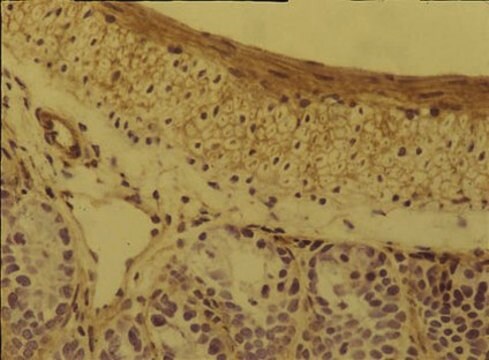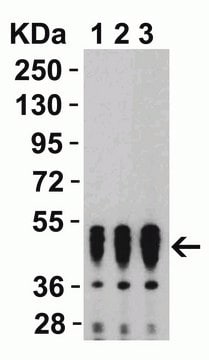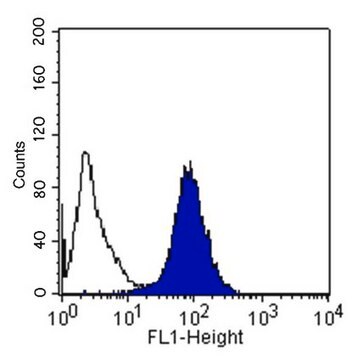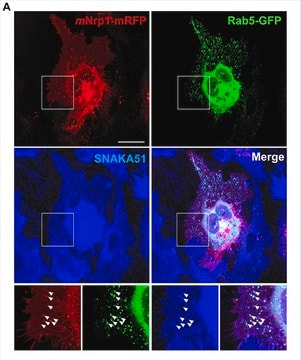MAB2514
Anti-Integrin α5β1 Antibody, clone BMB5
ascites fluid, clone BMB5, Chemicon®
Synonym(s):
VLA-5
About This Item
Recommended Products
biological source
rat
Quality Level
antibody form
ascites fluid
antibody product type
primary antibodies
clone
BMB5, monoclonal
species reactivity
mouse
manufacturer/tradename
Chemicon®
technique(s)
flow cytometry: suitable
immunohistochemistry: suitable
immunoprecipitation (IP): suitable
western blot: suitable
isotype
IgG3
NCBI accession no.
UniProt accession no.
shipped in
dry ice
target post-translational modification
unmodified
Gene Information
human ... ITGA5(3678)
Specificity
Immunogen
Application
Note that where cell adhesion to fibronectin involving other fibronectin receptors, such as VLA-4 (alpha4beta1) integrin, is involved, inhibition of cell adhesion by BMB5 alone may not be complete.
Immunoprecipitation from lysate of 10E6 cell equivalent: 2 μg
Flow cytometry: 10μg/mL
Western blot (non-denaturing gel)
Optimal working dilutions must be determined by end user.
Cell Structure
Integrins
Physical form
Storage and Stability
Other Notes
Legal Information
Disclaimer
Not finding the right product?
Try our Product Selector Tool.
recommended
Storage Class Code
10 - Combustible liquids
WGK
WGK 1
Flash Point(F)
Not applicable
Flash Point(C)
Not applicable
Certificates of Analysis (COA)
Search for Certificates of Analysis (COA) by entering the products Lot/Batch Number. Lot and Batch Numbers can be found on a product’s label following the words ‘Lot’ or ‘Batch’.
Already Own This Product?
Find documentation for the products that you have recently purchased in the Document Library.
Our team of scientists has experience in all areas of research including Life Science, Material Science, Chemical Synthesis, Chromatography, Analytical and many others.
Contact Technical Service







